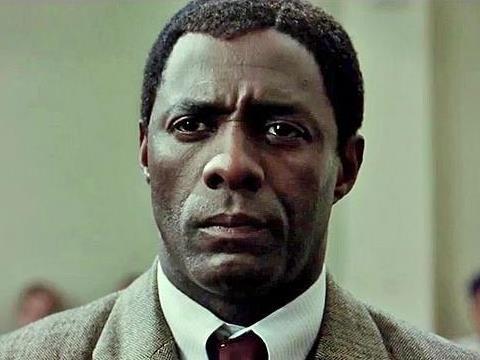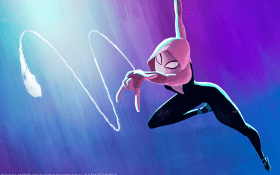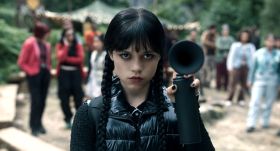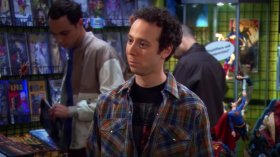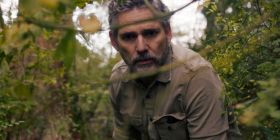The timing of the release of Mandela: Long Walk to Freedom is a product of circumstance. The latest biopic about apartheid campaigner, former prisoner and South African president, Nelson Mandela, arrives in cinemas just two months after his passing. Many other depictions of the inspirational leader made their way to screens during his lifetime, including telefilms Mandela and Mrs Mandela and features Mandela and de Klerk, Goodbye Bafana, Invictus and Winnie Mandela. However, in its length and breadth, the current offering aims to become the historical record.
‘I dream the same dream, night after night,’ announces Idris Elba (Pacific Rim) in the opening narration, drawling Mandela’s words with the distinctive South African accent. His meaning is specific – overlaid as it is upon images of his second wife Winnie Madikizela (Naomi Harris, Skyfall) and his other loved ones – but it lingers on as Justin Chadwick’s feature lays bare Mandela’s life: this is a man of great determination. The meaning of the name Mandela’s father attributes him, ‘troublemaker’, is also evoked both in early scenes of his legal practice, and in his rallying against injustice. Over his lifetime, Mandela sees his freedom restricted, his struggles change the course of history, and his sacrifice reverberate around the globe.
The subsequent portrait presents a persistent provocateur and interminable instigator, his tale removing any negative connotations from these labels. Education, hard work and pride are his platforms for stirring change, even as his tasks seem insurmountable against ingrained opposition and overt discrimination. Slowly, his voice rises from the ranks of his law career to speak against the persecution of his people. Swiftly, his actions attract personal, professional and political trouble, increasingly so when he aligns with the African National Congress, disavows the government, and attracts mounting police interest. With certainty, the film depicts the cost of his campaigning for his cause amid both difficulties and unlikely opportunities. Mandela’s relationship with Madikizela provides potency to Mandela’s plight, to the film’s treatment of its protagonist, and to a protracted narrative.
In his first feature since 2010’s The First Grader, helmer Chadwick stays classical in his approach to a figure rightfully granted universal respect. In his screenwriting follow-up to 2012’s Les Misérables, scribe William Nicholson also remains straight-forward in his adaptation of his subject’s autobiography. Neither avoids Mandela’s quick temper, nor the violent acts of the African National Congress, but it is tenacity they trumpet in the service of cementing Mandela’s legendary status. The details are cursorily treated, and hurriedly rushed through, a product of a life overflowing with interesting aspects that cannot easily be condensed into even a 141-minute film. What eventuates is an undemanding amalgam of extraordinary milestones, some hopeful, many harsh.
Amid a supporting cast always in the shadow of the lead character and performance, Elba rises beyond the material to the tenor of the underlying tale, with Harris a similarly commanding counterpart. The former thoroughly convinces as he conveys the measured mischief that motivates Mandela’s efforts; the latter is afforded her own showcase against significant adversity, but with less screen time. Both do more than imitate, they inhabit, the steely resolve shining through and the sparks of despair also evident. Elba brings ferocity and Harris fragility, though that’s not to say both traits don’t exist in each other’s portrayals; indeed, as the film continues, their archetypal modes of operation bleed into each other, never forgetting their respective strengths.
It is respectable enough to show, rather than probe, Mandela’s life and times, especially against Lol Crawley’s (Hyde Park on Hudson) soft but swelling imagery. Nevertheless, the latter would have made for more pertinent and less passive viewing. Perhaps that take will come when more time has elapsed, offering insight as much as emotion. For now, the result is certainly moving, competently compiled and confidently performed, but proves little more than a biopic as tribute.
Rating: 3 stars out of 5
Mandela: Long Walk to Freedom
Director: Justin Chadwick
UK / South Africa, 2013, 141 mins
Release date: February 6
Distributor: Roadshow
Rated: M
Actors:
Director:
Format:
Country:
Release:
